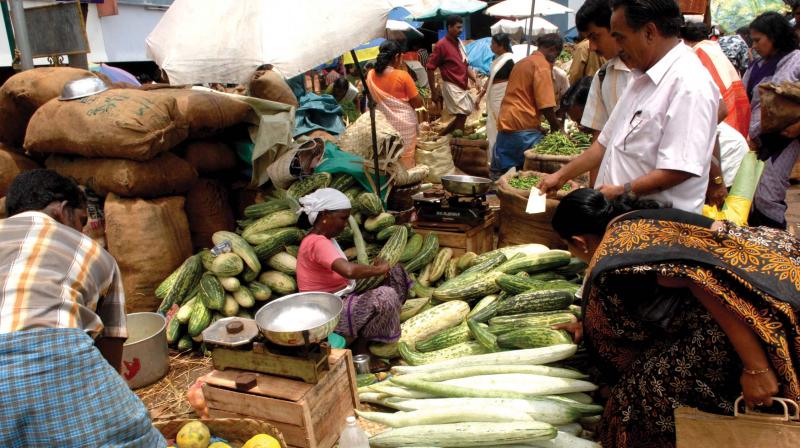Tighten belt now, GST may soon deliver
All initial claims made about the GST regime have been belied. GST has not brought down prices nor has it raised the state's revenue

THIRUVANANTHPAURAM: Nearly five months after the GST regime came into force, even a smidgen of hope that finance minister T.M. Thomas Isaac harboured has been dashed. The shocker was the alarming drop in revenue. Dr Isaac has also realized that the new regime has not been able to plug tax leakages. It has not simplified the tax procedures either, causing innumerable difficulties for traders and loss to the state exchequer.
Though he claimed that the indirect tax reform was politically repulsive, Dr Isaac has never masked his glee at the thought that GST would boost his finances. But after changes made to the GST tax slabs, and the seemingly intractable problems in constructing a technical framework for GST, the finance minister has found that instead of enriching, the GST has dried up his coffers.
“During the VAT era, 85 percent of our revenues came from the highest 14 percent tax slab. Now, after more than 100 items have been taken out of the highest slab of 28 percent, less than 20 percent of the state’s revenues are generated from the top slab,” Dr Isaac said.
He, however, was always suspicious about the argument that GST would bring prices down. “We were told that the prices will automatically come down because it was a competitive market. I had repeatedly told the GST council that as long as there was brand loyalty, prices will keep moving up,” he said.
The failure to erect the GST Network and the resultant delay in activating the e–way bill have further upset Dr Isaac’s finances. An e-way bill is secured after a trader intending to transport goods from one state to another uploads his invoice on the GSTN. With the network still under construction, e-way bills are not generated. Result: Goods are brought into the state without any record.
What's more, this is done with impunity as check-posts have been dismantled under the new regime. “Commodities like marble and granite, which do not have input tax credit, are transported without paying taxes,” he said. This was causing huge loss of revenue to the state.
The delayed installation of the GSTN has also resulted in the pileup of returns by traders. “A trader has to file three returns a month and now we have been told that returns for July can be filed only in December,” said Peringammala Ramachandran, the Thiruvananthapuram district president of Kerala Vyapari Vyvasayi Ekopana Samiti. So much for GST’s much-vaunted simplicity.
Nonetheless, Dr Isaac said that gradually the state would emerge as one of the biggest gainers of the GST regime. “We are trying to make the best of a bad bargain,” he said. He is pinning hopes on the huge GST revenue that has been locked up in the 'Integrated GST' kitty, which has still not been shared with the states.
Mr Joseph C. Mathew, IT advisor to former Chief Minister V.S. Achuthanandan, termed Dr Isaac’s enthusiasm for the GST regime as “abject surrender.” “The Left parties should not have supported a tax reform that strikes at the root of the country’s federalism,” Mr Mathew said.
He called the GST Council as an extra-constitutional authority. “The 33 percent weightage for the Centre in the Council is as good as the Centre holding a veto power over the states,” he said. The peculiar nature of the Council could also spring state cartels, he warned.
That GST will not bring down prices was a known fact, he said. The earlier VAT regime had not effected a price reduction, and then too manufacturers indulged in rampant profiteering. “The CAG had brought out a report in 2010 that revealed that corporates in three states had in four years after the launch of VAT pocketed over Rs 6,400 crore that they should have actually returned to the states,” Mr Mathew said.
Mr Ramachandran, however, painted traders as victims. “Now we have to pay service tax of 18 percent for the rent that we pay, for the phone that we use in our shops, and also for the loading and unloading charges we incur,” he said. Worse, he said that traders had to face harassment from two power centres. “Earlier, it was just the state Commercial Sales Tax Department officials. Now, besides the CST officials, our shops are frequented by Central Excise people, too,” he said.

